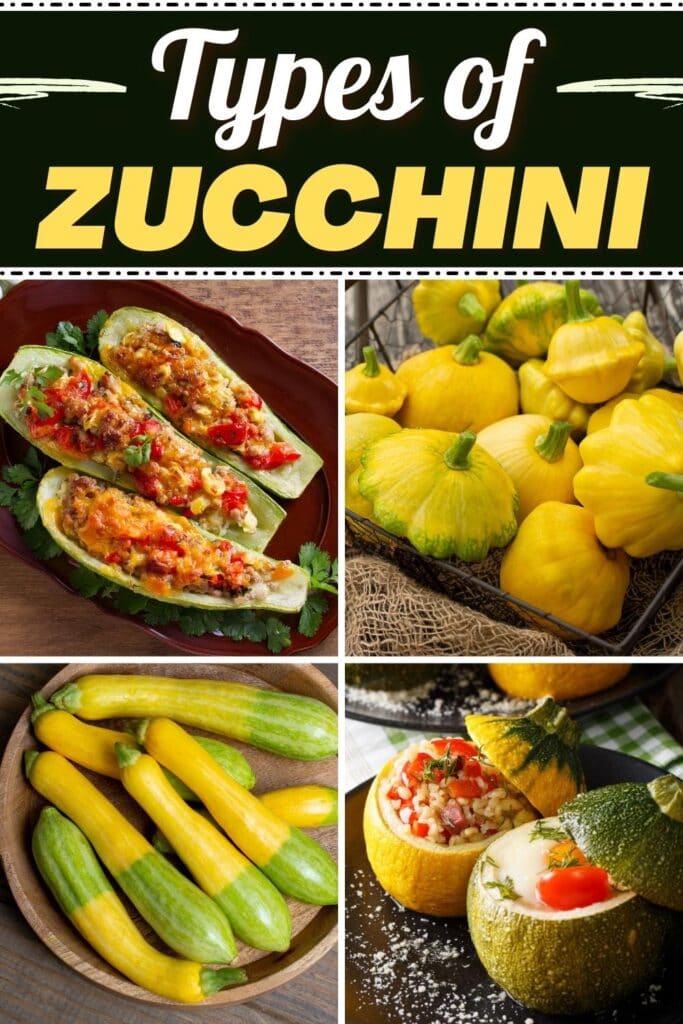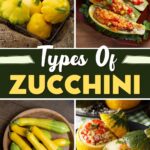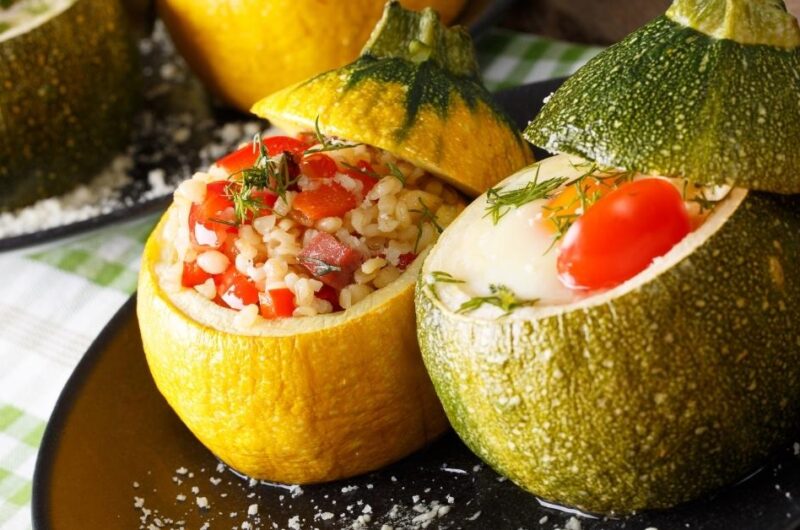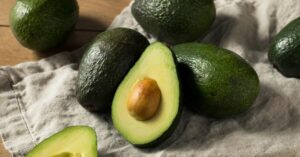Did you know there are different types of zucchini? It’s true!
When I found out there were more than 15 different varieties of zucchini, my mind was blown.
I thought there was green zucchini and then yellow zucchini that’s commonly referred to as yellow squash.
But this squash is so much more than that!
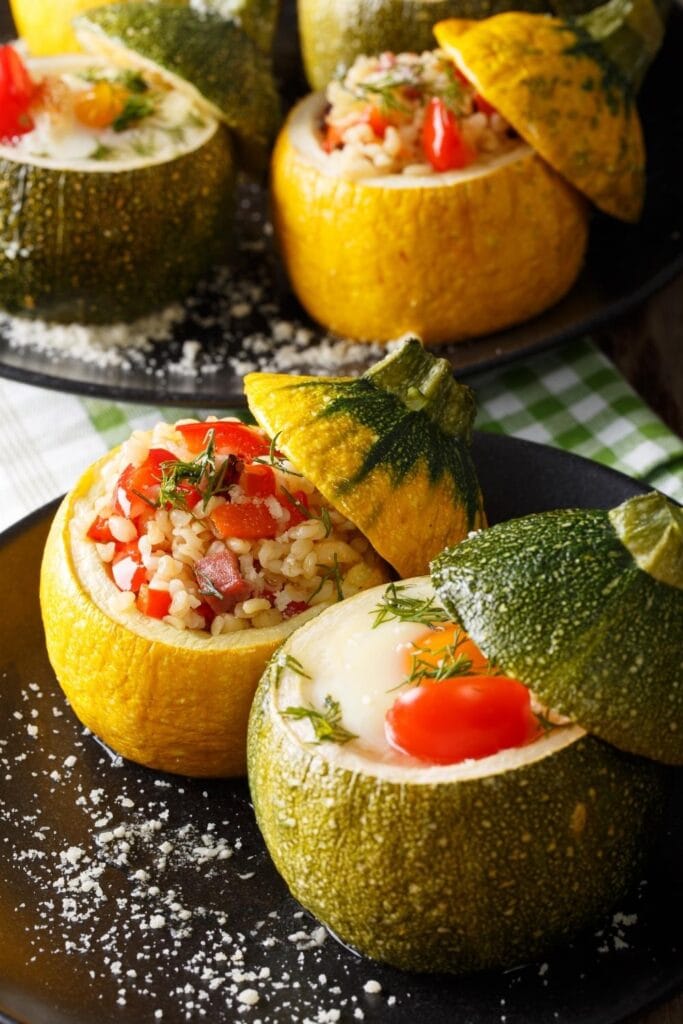
Short, round, green, yellow, sweet, and nutty, zucchini comes in all kinds of shapes, flavors, and textures.
With so many options, that can only mean one thing: more recipes!
Roasted, grilled, baked, or sauteed, there are a ton of different ways to prepare each and every type.
The key, though, is to educate yourself about each one so you know how to use them best.
From Round Zucchini to Gourmet Gold, here are the top 15 types of zucchini for all your zucchini recipes.
15 Types of Zucchini
Most of us think of zucchini as a green veggie that graces us in the summer.
However, zucchini comes in a wide range of varieties.
Some are short and yellow, and others have long necks that curve at the end.
While many are summer seasonals, you can find some available in winter, too.
Part of the Cucurbitaceae family, zucchini is a versatile fruit that is mild to nutty in flavor.
From the skins to the seeds, you can eat all this wonderful summer squash has to offer!
So without further ado, let’s jump into the best 15 types of zucchini and how you can prepare them for a tasty dish.
1. Round Zucchini
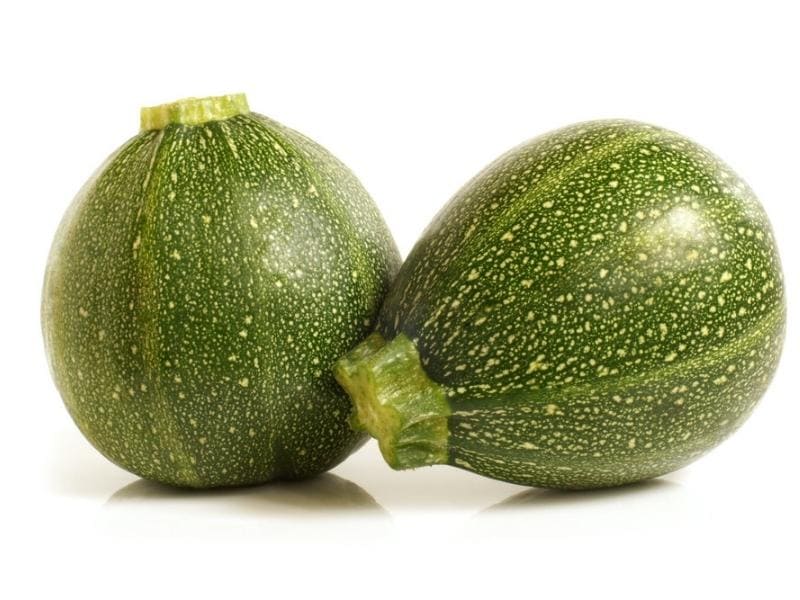
Just like it sounds, round zucchini is, well, round.
Despite the shape, it tastes the same as the regular zucchini you find at the grocery store.
That means you can bake, roast, or saute them like you normally would.
Although, the one main difference is round zucchini is great for stuffing.
You can hollow out the inside and pack it with your favorite stuffed squash fillings, couscous recipe, or quinoa medley.
They also make adorable bowls for serving zucchini soup for holidays, parties, and more.
2. Pattypan Squash
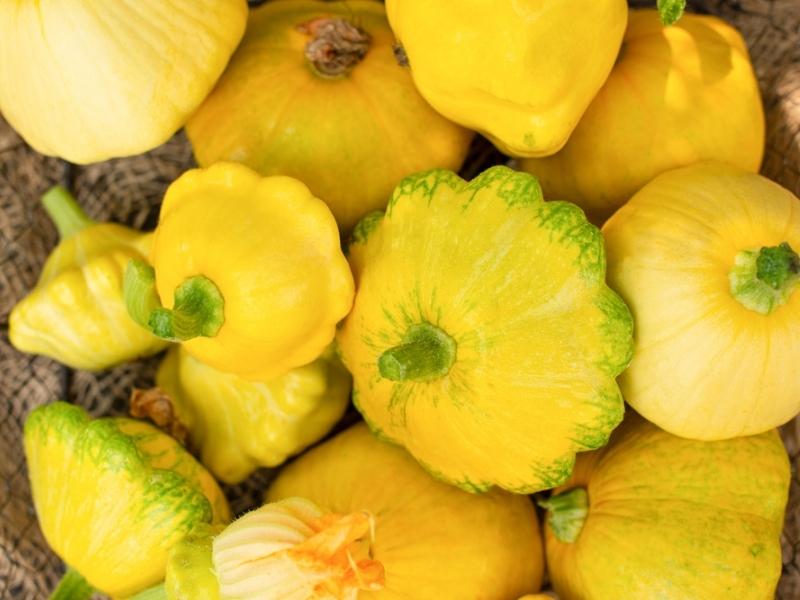
Pattypan squash is a fun-looking summer squash that has distinct scalloped edges.
While bright yellow is common, the color ranges from white to green.
From baking to frying, there are all kinds of incredible patty pan squash recipes you can make.
If you want to let the flavor shine, give it a coating of olive oil and pop it into the oven for roasting.
For a light and healthy dinner, turn it into a summer soup.
If you need something more substantial, a one-pot lemon pasta is always a winner in my book.
3. All Green Bush Zucchini
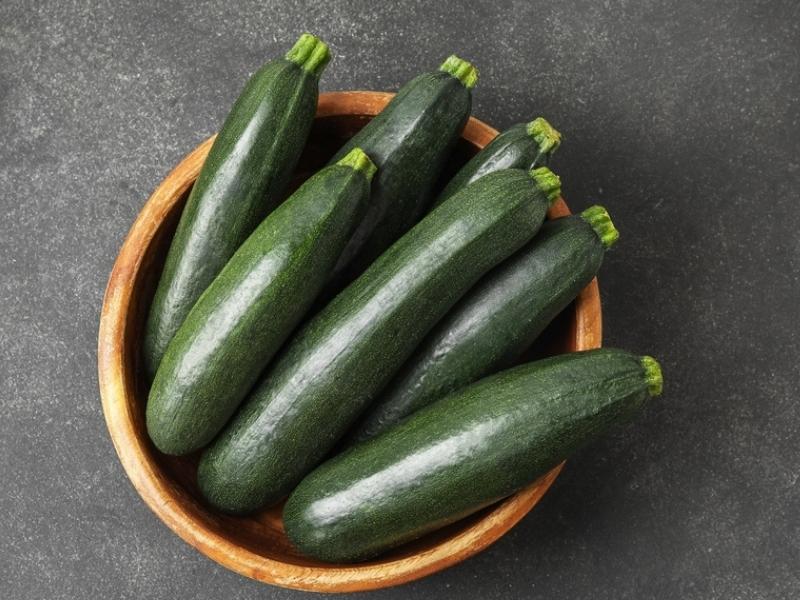
While some zucchini grows on vines, this all green bush zucchini grows like a bush. A very fruitful bush for that matter!
It’s loved by gardeners due to its crop abundance. While the squash itself can grow rather large, the smaller guys have all the flavor.
Give them a quick saute with some good olive oil.
For a garnish, a simple seasoning of salt and pepper with a hint of lemon is all you need.
4. Black Beauty Zucchini
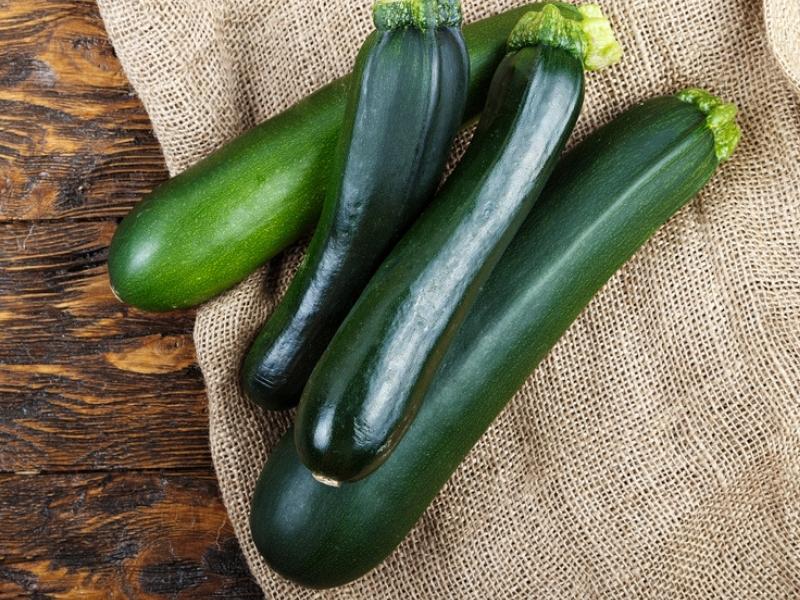
Black beauty zucchini has dark green skin and a mildly sweet flavor profile.
It is one of the most popular types of zucchinis around. So it’s easy to get your hands on some.
Whether they’re younger or more mature, they taste great at different life stages.
However, you may want to cook the older ones so the skin is more tender.
From salads to soups, you can find all sorts of uses for this beauty.
If you find yourself with a prolific crop, try a pickling recipe to preserve some for later.
5. Caserta
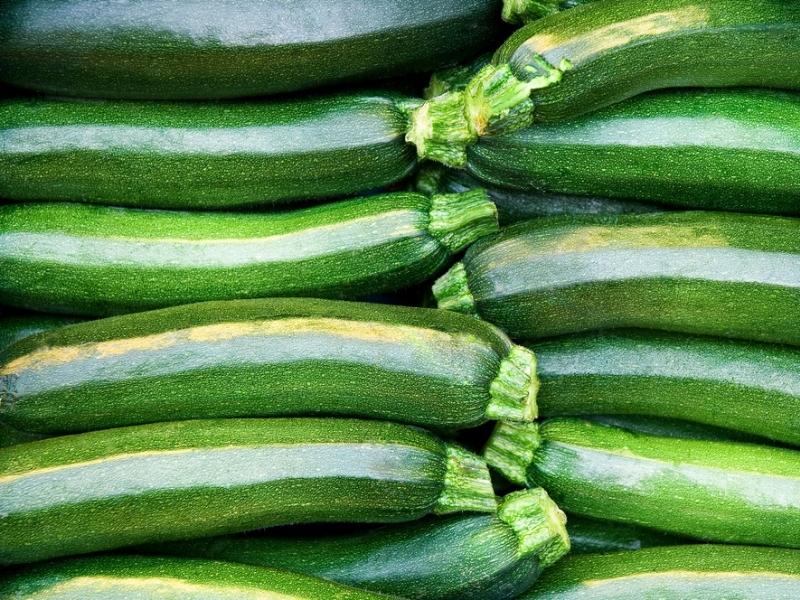
Caserta is a type of heirloom zucchini and a popular one at that.
One notable feature is the beautiful color that alternates shades of light and dark green.
Another identifiable feature is the shape.
Young caserta zucchinis have a straight shape that grows to curve as they age, giving them the classic crookneck shape.
It is exceptionally flavorful and great for sauteing, steaming, or even stir-frying.
6. Cocozelle
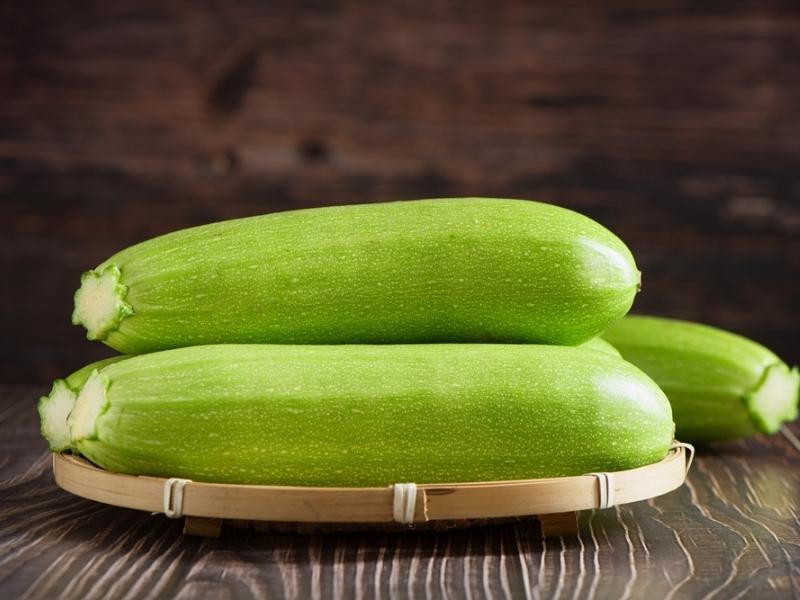
Bursting with flavor, cocozella is rich and at the same time mildly sweet.
Slice some up, toss them on the grill, and give them a splash of balsamic vinegar.
They’re also good skewered in veggie, chicken, or shrimp kabobs.
The greenish-white flesh is firm so it will hold up well when cooking.
If you’re in the mood for baked goods, try it in zucchini bread or healthy breakfast muffins.
7. Crookneck Squash
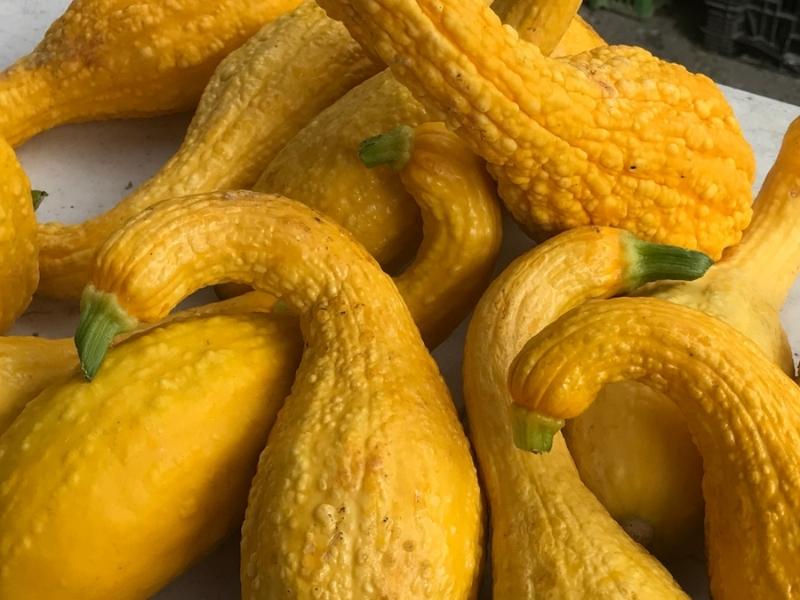
You know that bright yellow summer squash with a curved neck you see in the grocery store? That’s crookneck.
Named for its crooked neck, it can also be green in color. Some are even yellow and green.
The mildly sweet flavor is perfect for a ton of summer dishes. I like to batter and fry them, but they’re good raw, too.
I also love using it in casserole recipes and I sometimes eat it raw on a hummus and veggie platter.
8. Gadzukes
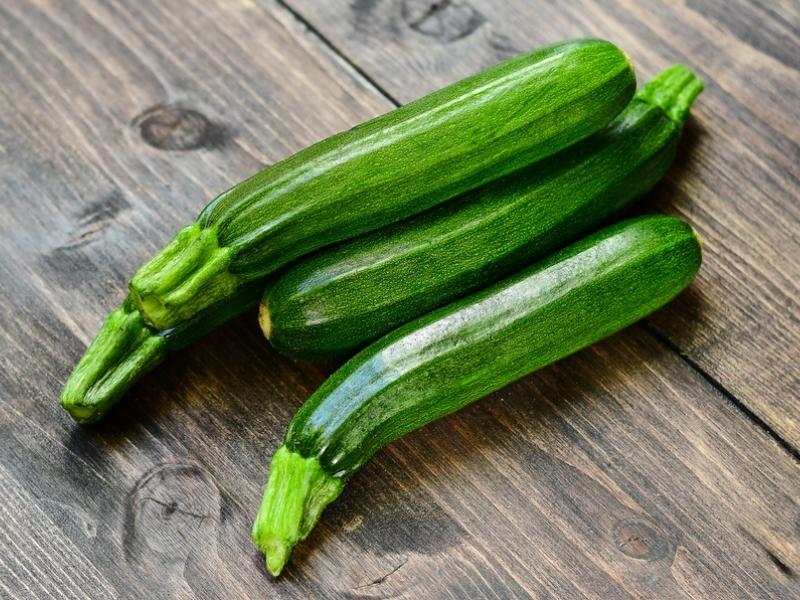
As fun to eat as it is to say, gadzukes is an Italian squash. It’s sweet and crisp, making it ideal for fresh dishes.
Toss it into a salad for a nice texture or add it to a bowl of summer pasta.
Speaking of pasta, make yours low-carb and turn gadzukes into zoodles!
Any way you make it, you’ll want the flavors and textures to shine. So I recommend skipping this one for baking.
9. Tromboncino Zucchini
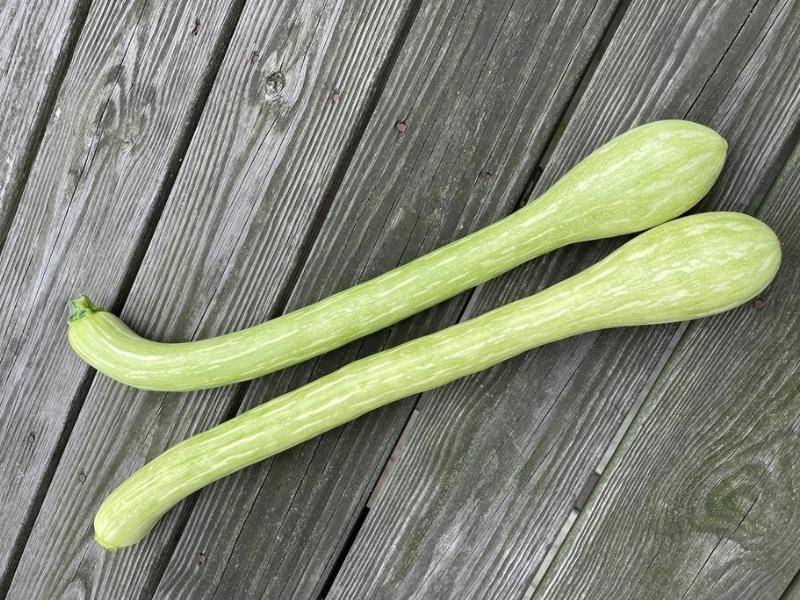
Tromboncino zucchini got its name from its trombone shape. In fact, tromboncino is Italian for “trombone”!
The flavor is on the mild side and it sports a light green color which sets it apart from other varieties.
As an Italian zucchini, it’s only fitting to use it in Italian dishes like gnocchi or a big bowl of farfalle.
Another tasty option is to turn it into a tomato-based veggie pasta sauce.
10. Rampicante Zucchini
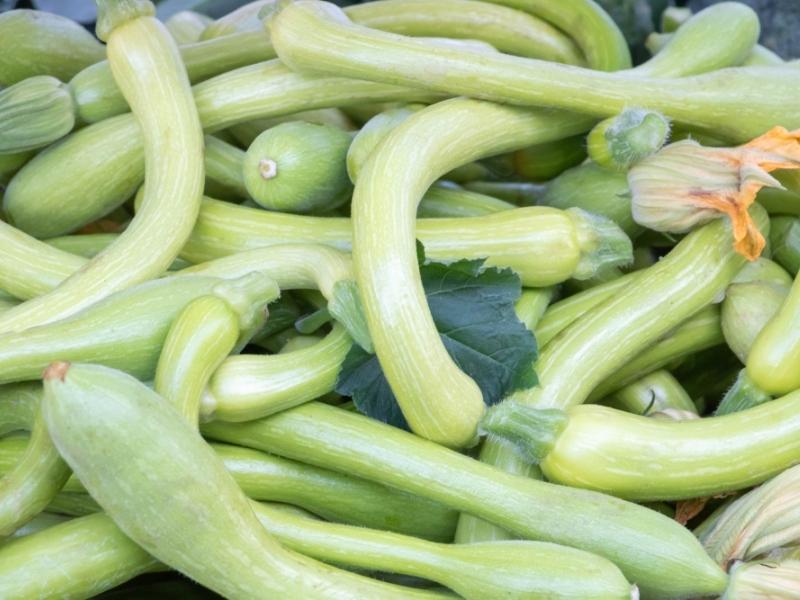
Most zucchini types are summer seasonals, but Rampicante is ripe both during winter and summer.
The unusual shape is incredibly distinct. It features a fat bottom with a long, slim neck.
You’ll know it’s ripe for the picking when it turns a lime-green color.
Mildly sweet and slightly nutty, rampicante can be enjoyed in a number of ways.
Use it in a ratatouille or turn it into savory zucchini and cheddar cheese bread.
If you’re a savory pancake fan, you can try that, too.
11. Magda
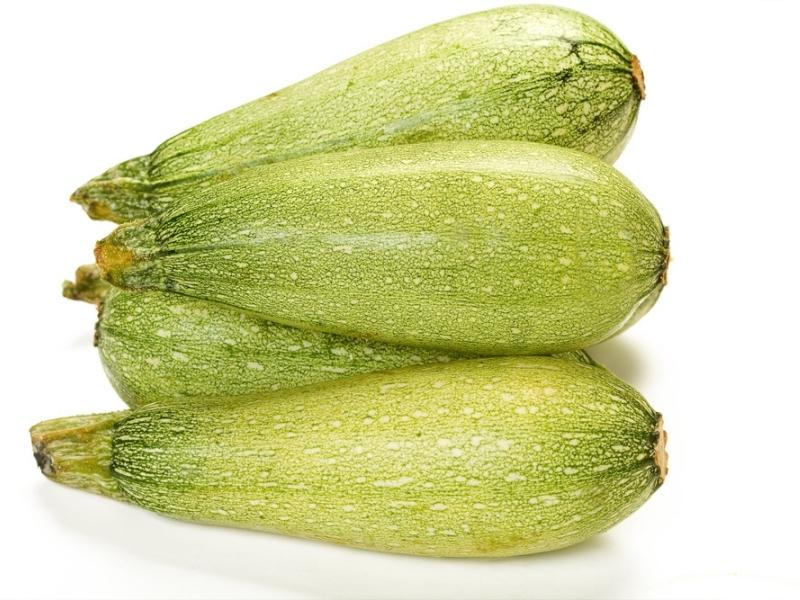
Magda is another type of zucchini with a nutty and sweet flavor profile.
Dense and crisp, Magda has a pale green color and a wide body that is perfect for stuffing. I’m thinking, zucchini boats. Anyone else?
Despite how you make it, you’ll want to eat it soon after picking it. This one is best when you eat it as fresh as can be.
12. Dunja Zucchini
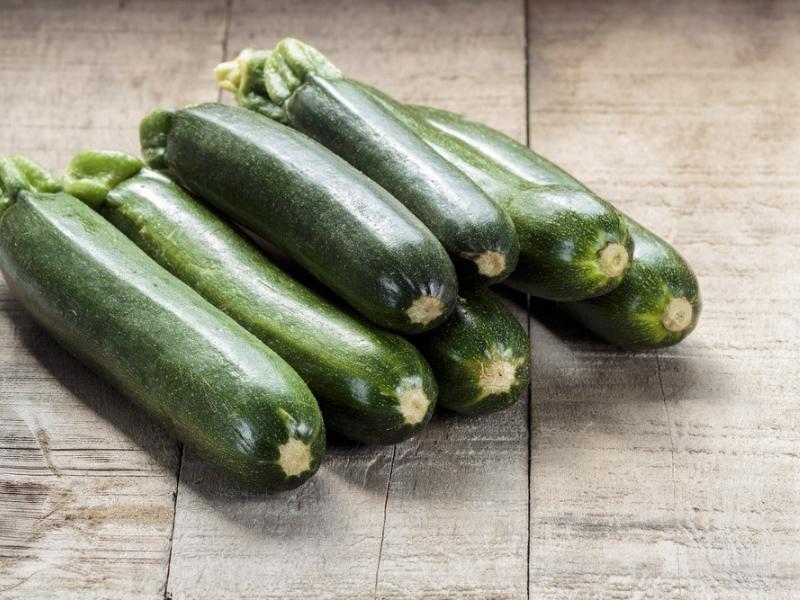
Dark green and delicious, dunja zucchini is mildly sweet.
The skin is very glossy and it has a nice shape, making it easier to prepare in the kitchen.
Gardeners love it because it’s easy to harvest and has a high yield. I love it because it makes exceptional fritters.
The trick to getting crisp zucchini fritters is to squeeze out as much moisture as possible.
Whip up a crispy batch and dunk it in a garlicky Greek yogurt aioli for a delectable treat.
Dunja is also good roasted with other veggies like bell peppers and onions in sheet pan fajitas.
13. Zephyr
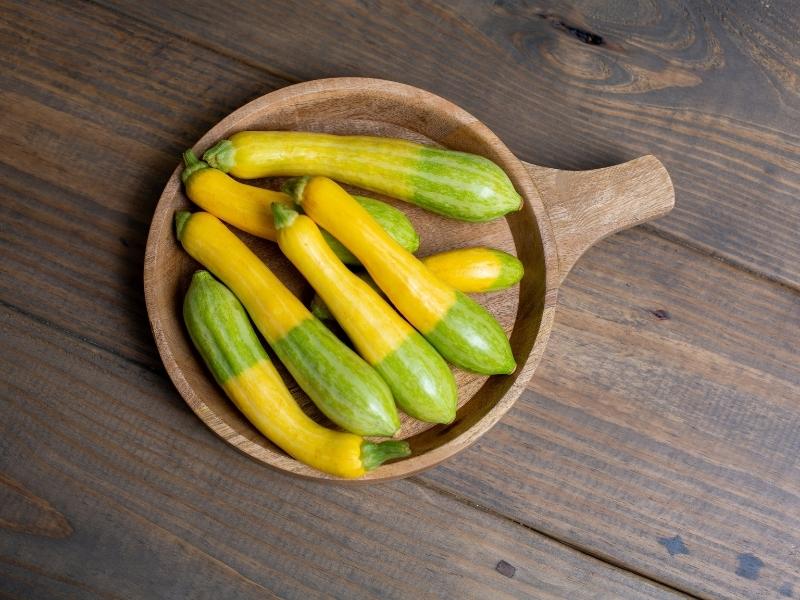
Another zucchini that is good raw is Zephyr. It has a nutty kick to it that goes well with hummus and other creamy dips.
The fruit has a gorgeous coloration that is mainly yellow with a band of green.
It’s a firm yet tender variety, which is why I love eating it raw.
The flowers are also edible and taste sensational when you fry them and stuff them with goat cheese.
If you do want to cook your Zephyr zucchini, give it a quick saute.
You can lightly season them to let the flavors shine or throw them in a stir-fry.
14. Golden Egg
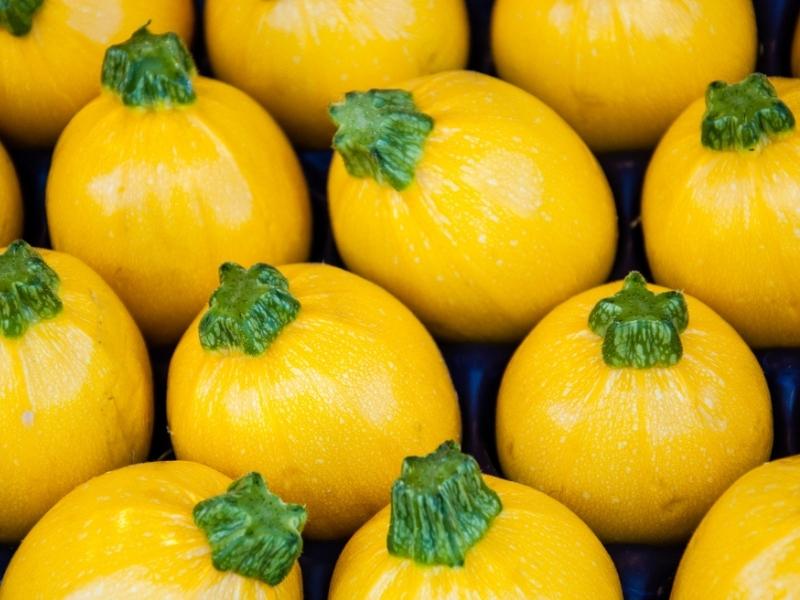
Bright yellow and round, it’s not hard to see how the golden egg got its name.
The flavor is most often described as being chartreuse-like.
In case you aren’t familiar, chartreuse is a type of French liqueur. Needless to say, it’s sweet.
Due to the sweetness, golden egg is a prime choice for baking. Muffins, bread, and pancakes are just a few recommendations.
Not much of a baker? You can’t go wrong with zucchini fritters.
15. Gourmet Gold
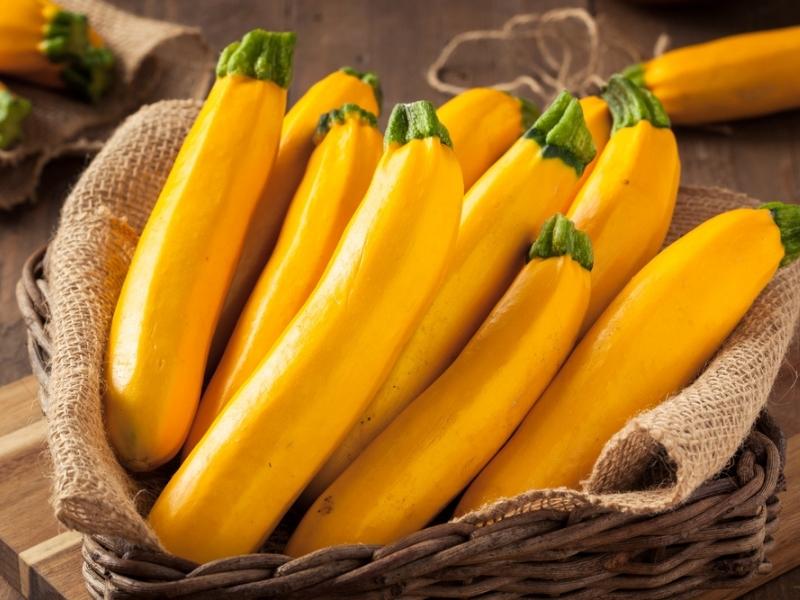
Gourmet gold is mildly sweet and buttery with a brilliant yellow exterior. The flesh is softer than other varieties so it cooks easily.
Some swear by it in a frittata, which I can‘t say I disagree with.
Lately, I’ve been more apt to use it as a pizza topping with some red onion, pine nuts, and parmesan cheese. It’s also fantastic in a veggie salad.
Either way, gourmet gold adds a burst of color to any dish.
